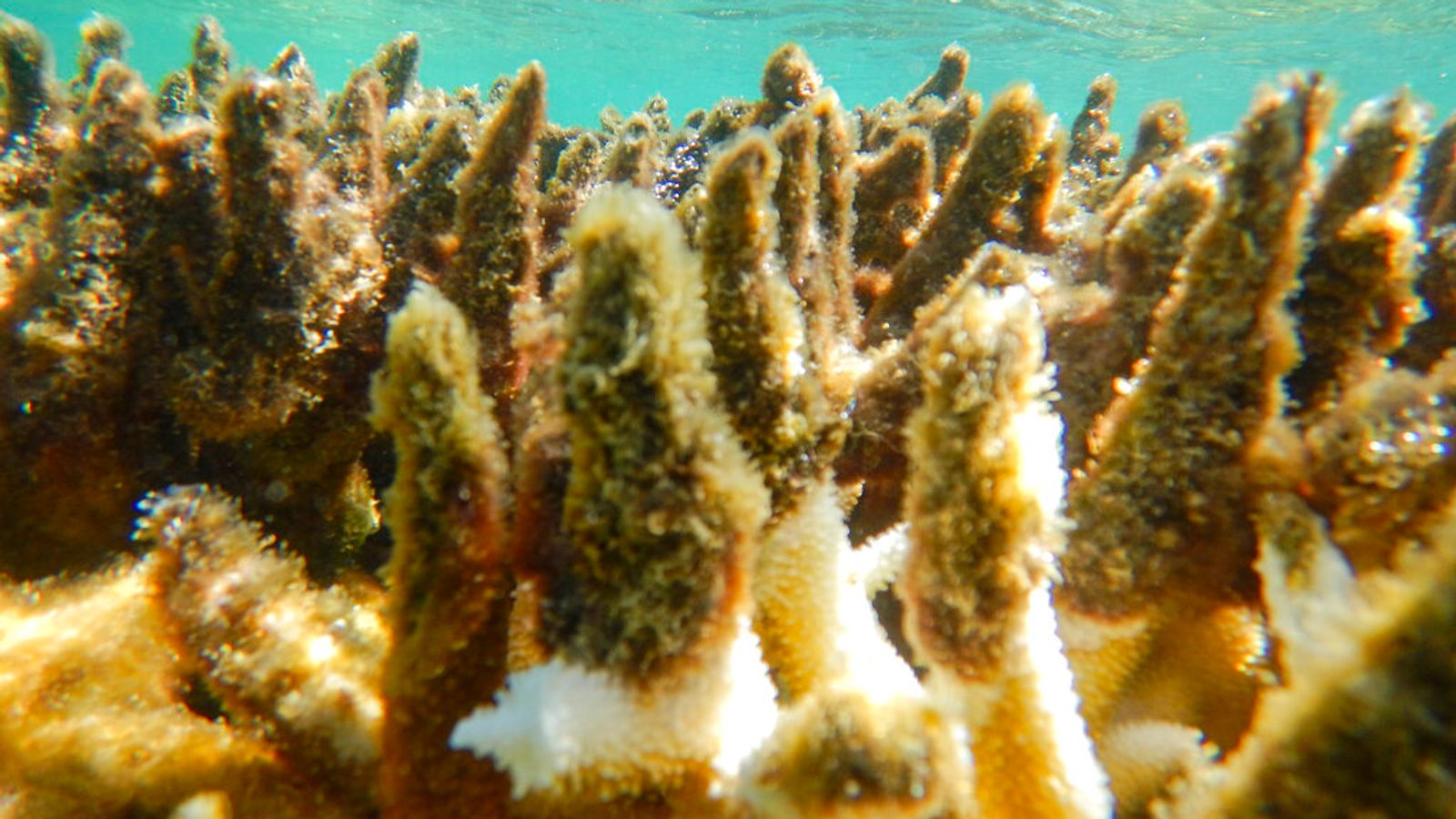Bleaching had damaged almost all Great Barrier Reef coral surveyed this year in the fourth such mass event in seven years, Australian government scientists said.
The world’s largest coral reef ecosystem suffered its sixth mass bleaching on record after being hit by three marine heatwaves, the Great Barrier Reef Marine Authority (GBRMA) said in its snapshot report of summer 2021-22.
Bleaching is a heat stress response caused by global warming. This is the reef’s first bleaching event during a La Nina weather pattern, which is associated with cooler Pacific Ocean temperatures, the authority said.
Simon Bradshaw, a researcher at the Climate Council, an Australia-based group that tracks climate change, said the report shows that the reef’s survival depends on steep global emission cuts within the decade.
“This is heartbreaking. This is deeply troubling,” Mr Bradshaw said.
“It shows that our Barrier Reef really is in very serious trouble indeed.”
Surveys were conducted after the final heat wave in March 2022. Bleached coral is stressed but still alive, so can recover and regain its colour as the ocean cools off after summer, as happened in 2020 when much coral survived a mass bleaching event.
Australia: 50kg of cocaine found near body of diver on riverbank in New South Wales
How do Australia’s elections work and who are the ones to watch in 2022?
How Australia’s first interest rate hike in more than a decade could impact the election
“The early indications are that the mortality won’t be very high,” said David Wachenfeld, chief scientist at GBRMA, which manages the reef ecosystem.
“We are hoping that we will see most of the coral that is bleached recover and we will end up with an event rather more like 2020 when, yes, there was mass bleaching, but there was low mortality.”
Read more on climate change:
Global temperature could be warmest on record in one of the next five years
Satellite images reveal mounds of plastic tumbling into world’s waters
Bleaching in 2016, 2017 and 2020 damaged two-thirds of the coral in the famed reef off Australia’s east coast. The earlier two events led to “quite high levels of coral mortality”, Mr Wachenfeld said.
Last July, Australia garnered enough international support to defer an attempt by Unesco, the United Nations’ cultural organisation, to downgrade the reef’s World Heritage status to “in danger” because of damage caused by climate change.
A United Nations delegation visited the reef again in March to assess the reef’s World Heritage listing.
Watch the Daily Climate Show at 8.30pm Monday to Friday on Sky News, the Sky News website and app, on YouTube and Twitter.
The show investigates how global warming is changing our landscape and highlights solutions to the crisis






















